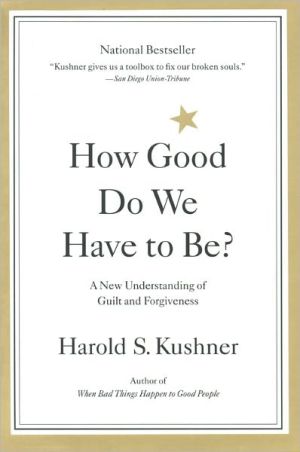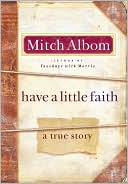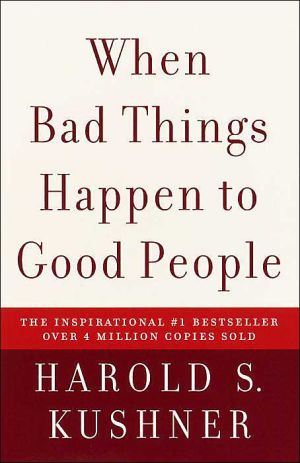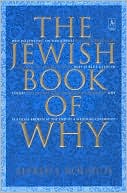How Good Do We Have to Be?
From the author of When Bad Things Happen to Good People comes an inspiring new bestseller that puts human feelings of guilt and inadequacy in perspective - and teaches us how we can learn to accept ourselves and others even when we and they are less than perfect. How Good Do We Have to Be? is for everyone who experiences that sense of guilt and disappointment. Harold Kushner, writing with his customary generosity and wisdom, shows us how human life is too complex for anyone to live it...
Search in google:
From the author of When Bad Things Happen to Good People comes an inspiring new bestseller that puts human feelings of guilt and inadequacy in perspective - and teaches us how we can learn to accept ourselves and others even when we and they are less than perfect. How Good Do We Have to Be? is for everyone who experiences that sense of guilt and disappointment. Harold Kushner, writing with his customary generosity and wisdom, shows us how human life is too complex for anyone to live it without making mistakes, and why we need not fear the loss of God's love when we are less than perfect. Harold Kushner begins by offering a radically new interpretation of the story of Adam and Eve, which he sees as a tale of Paradise Outgrown rather than Paradise Lost: eating from the Tree of Knowledge was not an act of disobedience, but a brave step forward toward becoming human, complete with the richness of work, sexuality and child-rearing, and a sense of our mortality. Drawing on modern literature, psychology, theology,,and his own thirty years of experience as a congregational rabbi, Harold Kushner reveals how acceptance and forgiveness can change our relationships with the most important people in our lives and help us meet the bold and rewarding challenge of being human. Library Journal Jewish and Christian religions reinforce feelings of guilt and inadequacy by using the story of the Fall of Adam and Eve to teach that humankind's spiritual inadequacies are inherent. Rabbi Kushner (When Bad Things Happen to Good People, 1981) here retells the Genesis story of the primeval couple to demonstrate that the imperfections of humankind do not merit the loss of God's love, nor should they foster the guilt and anxiety that they often do in a society driven by a misguided attachment to perfection. Combining psychology and spirituality, Kushner invokes the power of acceptance and forgiveness as a means of overcoming the insidious consequences of a preoccupation with perfection. For most libraries.
\ Library JournalJewish and Christian religions reinforce feelings of guilt and inadequacy by using the story of the Fall of Adam and Eve to teach that humankind's spiritual inadequacies are inherent. Rabbi Kushner (When Bad Things Happen to Good People, 1981) here retells the Genesis story of the primeval couple to demonstrate that the imperfections of humankind do not merit the loss of God's love, nor should they foster the guilt and anxiety that they often do in a society driven by a misguided attachment to perfection. Combining psychology and spirituality, Kushner invokes the power of acceptance and forgiveness as a means of overcoming the insidious consequences of a preoccupation with perfection. For most libraries.\ \ \ \ \ Kirkus ReviewsAn unconventional reading of the Garden of Eden story, offering the best-selling rabbi's suggestions about its psychological implications for the children of Adam and Eve.\ Rabbi Kushner (When Bad Things Happen to Good People, 1981; To Life: A Celebration of Jewish Being and Thinking, 1993; etc.) contends that we demand too much of ourselves and forgive too little. The traditional reading of the Adam and Eve saga as a paradigm of disobedience and divine punishment is responsible, he feels, for much of the unnecessary guilt that we heap on ourselves. We must free ourselves of the notion that God demands perfection of us. "It is the notion that we were supposed to be perfect, and that we could expect others to be perfect . . . that leaves us feeling constantly guilty and perpetually disappointed." The purpose of religion, contends Kushner, is to ease our troubled souls and not to exacerbate our doubts and conflicts. Religion ideally teaches us that not only does God forgive our mistakes, but that our mistakes have a divine purpose, as experiences from which we can grow. "Religion properly understood is the cure for feelings of guilt and shame, not their cause." And just as we must learn to forgive ourselves, we must be more forgiving of others. The alternative is to turn ourselves into victims and others into victimizers. Sin and punishment are not our inheritance from Adam and Eve. Adam and Eve's legacies of work, love, and the awareness of mortality make up the "burden and challenges of being truly human." Nowhere, however, does Kushner consider more complex questions, such as how society should handle those who suffer not from an excess of guilt, but from its absence.\ Replete with personal anecdotes and references to contemporary literature, this is an appealing but ultimately shallow piece of feel-good pop theology.\ \ \







